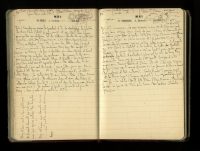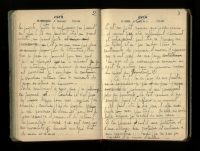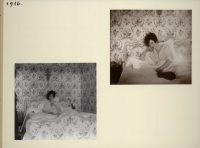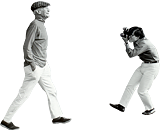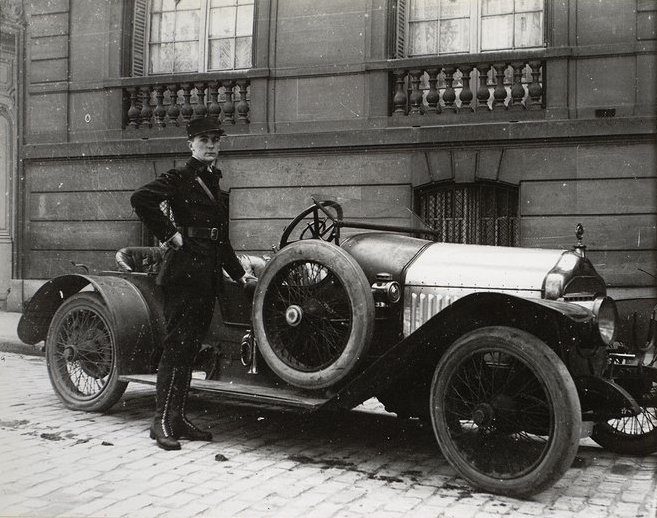Rite of passage
Jacques Henri Lartigue was not destined to be a war hero. Up until his enlistment in the auxiliary services in 1916, his journal entries convey a sense of guilt for his happiness during troubled times. In August 1914, for instance, he wrote : « We’re as happy as can be here in Rouzat ! I could’ve left for the war but I didn’t ! […] We have everything we need (good vegetables, fruit etc…) and yet we’re not quite happy… I’m always afraid they’ll decide to draft younger men… […] Me, I’m happy, but I don’t dare say it. »
While he was in the auxiliary services from May 1916 to April 1917, his major concerns were still of a worldly nature. In June 1917, he abruptly stopped writing in his journal; it is perhaps more important to consider what he doesn”t say. As the war dragged on, it affected his sensitive nature. Acting as a chauffeur for army officers, he would regularly go to city hospitals, with their “gueules cassées“ (soldiers with mutilated faces) but makes no mention of it. Perhaps this 1919 entry helps to explain : « The same goes for my photography collection, I don’t want to keep any memory of the war or of my service, and want only keep the ones that will remind me of happy moments during those particularly tough times. »
The style of his journal entries evolved during the year 1917, and marks a profound inner shift. Lartigue goes from obsessively and meticulously writing everything down, to a freer way of relating his impressions. He becomes aware that his life is less about facts than about what he feels. From 1917 on, making time stand still is no longer a deep-rooted concern, nor is the childish, rationalistic compulsion of keeping track of each hour. He realizes that to proceed in such a manner is fruitless; he becomes more lyrical, writing about the upheaval in his love life.
Although his contribution to the war effort was minor, war itself and the turmoil it provoked acted as a catalyst for building Jacques’ character as a young man. The period between 1914 and 1918 can be seen as a rite of passage intertwined with ethical and sentimental introspection : can the fact that Lartigue chose Marthe Chenal — the patriotic icon who sang “La Marseillaise “ wrapped in a French flag — as his first mistress, be a mere coincidence?
Wanda Woloszyn
